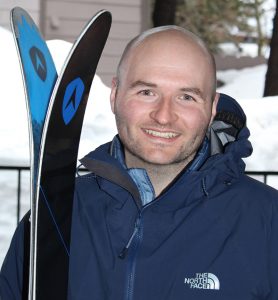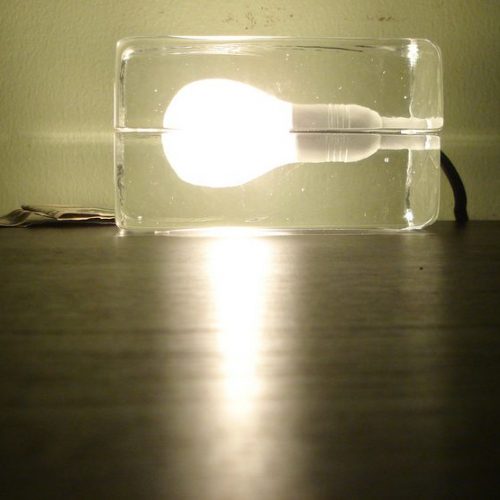“I didn’t have time to write a short letter, so I wrote a long one instead.”
There’s debate on who the quote is attributed to (Mark Twain usually gets the credit), but its sentiment goes without saying. It often takes more thought and effort to deliver a message in just few words than it does in many.
When you’re so close to something, a business you’ve spent years lovingly growing or a product you’ve taken through numerous iterations, it’s sometimes hard to see the wood for the trees. Your vision is unwavering, you know that business or product inside out and you could talk for days about how you’re going to change the world.
But, for that very reason, simplifying everything down into a few words that allows other people to just ‘get it’, can be one of the hardest tasks of all, unless of course you’re a natural wordsmith. For all the others, the amazing coders, techies, makers and leaders, it’s about taking a step back, tapping into emotions and stripping things down to simplicity.
For Charles Smith and Rupert Jabelman, co-founders of Col8, that’s exactly what they did, and it had an incredible effect.

Col8 is a cloud-based platform for storage, management and delivery of video, but it’s much cleverer than just a file storage facility, incorporating location and geospatial data, what Charles and Rupert have built is pretty smart (their interactive map of self-driving car data and video footage a prime example)!
Passion, to pivot
Keen mountain bikers and snowboarders, when they launched Col8 they wanted to build a platform where extreme sports video could be stored and managed, but they also knew that people don’t think in terms of files and folders, but in terms of memories, context and places. This became the vision for the Bristol-based startup.
At the start of 2018, Charles and Rupert saw an opportunity and decided to make a pivot to a B2B platform. They knew that the way business video has been managed to date, wasn’t very robust. Most is stored on network drives or cloud drives since video files are huge, especially with 4k becoming a standard. As a result there’s become a lack of ability for computers to handle large amounts of video.
However, with this pivot came a sense of ambiguity and trying to convey the benefits of their platform became more difficult. Charles explains, “One of the problems we’ve always had is that, because we’re techies, we’ve always been really crap at articulating ourselves. Because there’s so many great things our system does, it’s really hard to articulate what it actually does”.
A sense of clarity
And so, during a workshop session with Simpleweb that chewed over ideas and poured over purpose, things started to come into focus when Charles shouted out, “I just want to make video less stupid, we’ve got computers that can help us get to Mars but I can’t click and instantly watch a bit of video I want to see”.
Those few emotive words seemed to sum up everything they were trying to do but such language would normally have been unnatural. “We come from a background in engineering, management consulting at IBM and running large programmes for nuclear defence where you have to be very careful with your words and, I guess, use business speak”, explains Charles. Yet, by going back to the emotions that drove them and the problem that really frustrates them, they were able to come up with a new pickup line for introducing Col8. “It was the complete opposite of what we were used to but we loved it because it was how we felt, it helps to instantly connect with people, it’s emotive.”
Charles understands how, for others like themselves, tapping into those emotions doesn’t come naturally. “I think it’s really hard for people with a technical mindset and who know the problem that they want to solve, to talk about their product in a way that just focuses on the emotions. The bizarre thing is I know all these things but when it’s your own business it’s hard”.
Networking with narrative
Charles and Rupert went away and crafted what they’d learned, taking their new pickup line and honing it in time for a series of events at Startup Grind, Google Campus and Oracle Accelerator. The events gave them the opportunity to put to their new narrative to the test and as Charles explains, for a solid 8 hours we learned more about how to communicate what we were and what we did than ever before.”
“When people came over, we hooked them in saying ‘we make video less stupid’, it peaked people’s interest, framed their story and allowed us to put things into perspective, it’s about telling a story.”
The pivot that they’d made at the start of the year now had more clarity, it helped them realise that the problems they were having as snowboarders dealing with all their videos, were the same problems that businesses with having with their own video footage.
Now, a little bit further down the line, they’ve continued to re-craft their pitch deck and even got some guidance from a coach to help bring the narrative to life, all based on their passion about what they do, where they come from and as Charles says, “what pissed us off”.
Everything all seemed to make sense when they got into the final five pitching at the Oracle Accelerator. Charles says, “Somebody came up to us afterwards and repeated our message back to us perfectly, and that was the first time that had ever happened.”
Photo by Sebastian Engler on Unsplash
To apply for investment for your early-stage startup, just fill out this application form.

